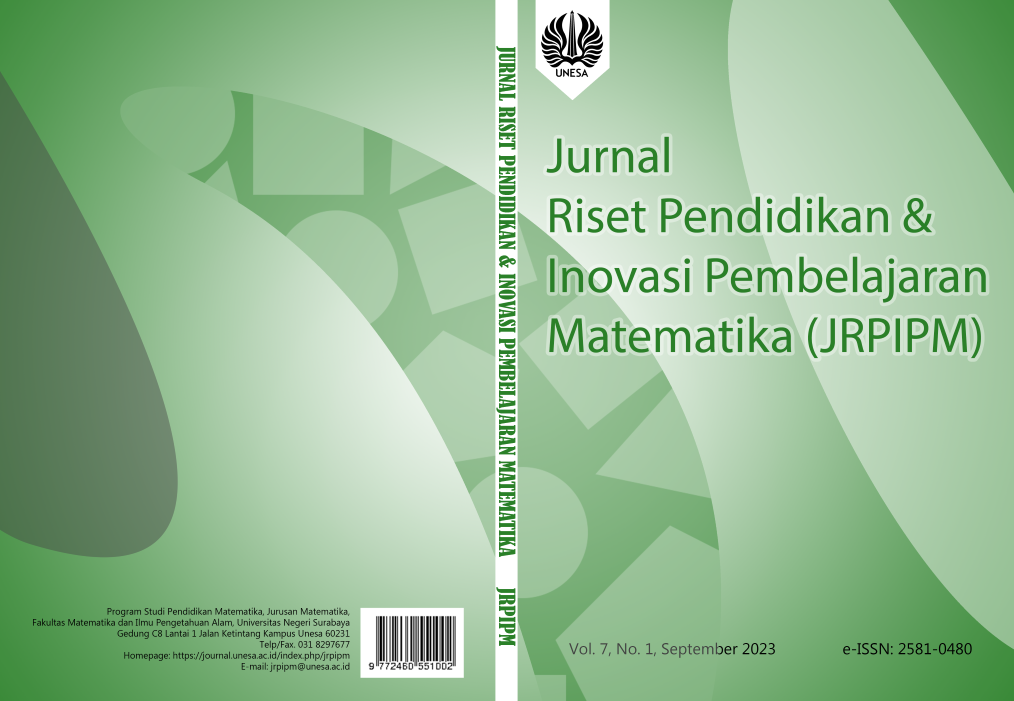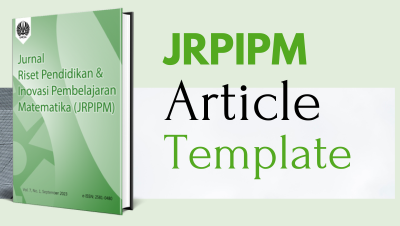Algebraic Thinking Profile of Junior High School Students with Reflective Cognitive Style in Solving Math Problems
DOI:
https://doi.org/10.26740/jrpipm.v7n1.p75-84Keywords:
Algebraic Thinking, Problem-Solving, Reflective Cognitive Style.Abstract
The differences in algebraic thinking when solving problems are determined by the characteristics of students. One of the distinguishing characteristics is cognitive style. The aim of this study was to describe the algebraic thinking profile of students who have reflective cognitive styles in solving math problems. This research is descriptive qualitative research, focusing grade 8 junior high school students with reflective cognitive style. Data collection methods using tests and interviews. This study used three types of tests, the Matching Familiar Figure Test (MFFT) to determine students' cognitive style, the Mathematics Ability Test (AMT) to measure students' mathematical abilities, and the Problem-Solving Test (PST) to obtain data related to students' algebraic thinking profile in solving math problems. Data analysis is conducted in three stages: data reduction, data presentation, and conclusion drawing. The results showed that the algebraic thinking of students with reflective cognitive style in solving problems meets the three aspects of algebraic thinking indicators, namely performing activities to generalize the pattern and determine the next term of the given pattern, represent and compare data in tabular form, and understand the meaning of variables and use variables in the form of letters or symbols as a representation of something unknown value in algebraic form. Students with a Reflective Cognitive Style in solving problems can understand the problems given well, be careful and thorough in writing the steps of completion, straightforward and coherent in answering questions so that the answers given tend to be correct.
References
J. A. Van de Walle, K. Karp, and J. M. Bay-Williams, Elementary and Middle School Mathematics: Teaching Developmentally. Allyn & Bacon, 2010. [Online]. Available: https://books.google.co.id/books?id=w_zuAAAAMAAJ
Suharnan, Psikologi Kognitif. Surabaya: Srikandi, 2005.
R. R. Skemp, The Psychology of Learning Mathematics. in Pelican books. L. Erlbaum Associates, 1987. [Online]. Available: https://books.google.co.id/books?id=8WTZk8cCCNUC
Sugiyono, Metode Penelitian Kuantitatif Kualitatif dan R&D. Bandung: Alfabeta, 2013.
Published
Versions
- 2023-12-08 (2)
- 2023-12-08 (1)
How to Cite
Issue
Section
 Abstract views: 494
,
Abstract views: 494
, PDF Downloads: 334
PDF Downloads: 334







